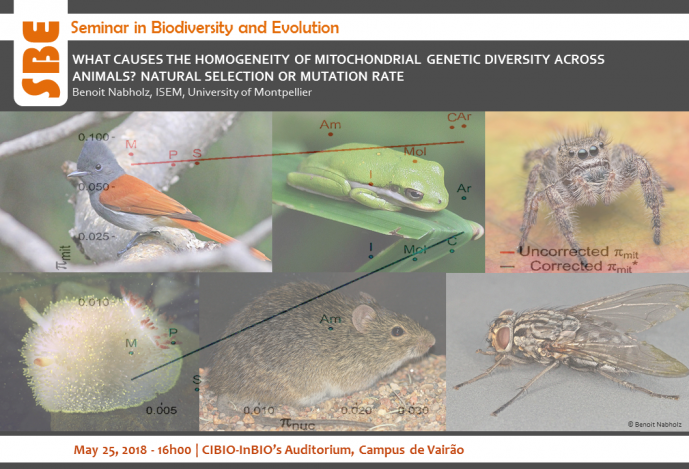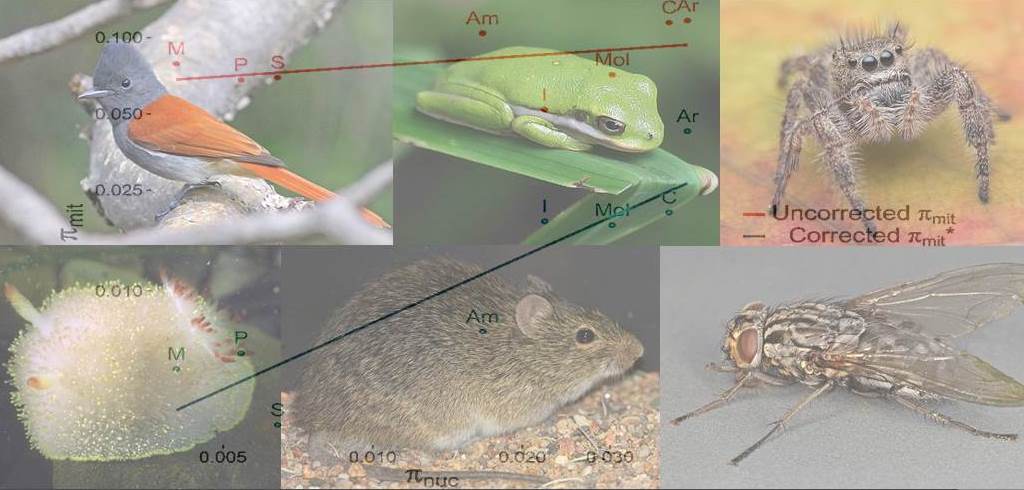WHAT CAUSES THE HOMOGENEITY OF MITOCHONDRIAL GENETIC DIVERSITY ACROSS ANIMALS? NATURAL SELECTION OR MUTATION RATE


It is commonly assumed that mitochondrial DNA (mtDNA) evolves at a faster rate than nuclear DNA (nuDNA) in animals. This has contributed to the popularity of mtDNA as a molecular marker in evolutionary studies. Analyzing 121 multilocus data sets and four phylogenomic data sets encompassing 4,676 species of animals, we demonstrate that the ratio of mitochondrial over nuclear mutation rate is highly variable among animal taxa. In nonvertebrates, such as insects and arachnids, the ratio of mtDNA over nuDNA mutation rate varies between 2 and 6, whereas it is above 20, on average, in vertebrates such as scaled reptiles and birds. Interestingly, this variation is sufficient to explain the previous report of a similar level of mitochondrial polymorphism, on average, between vertebrates and nonvertebrates, which was originally interpreted as reflecting the effect of pervasive positive selection. Our analysis rather indicates that the among-phyla homogeneity in within species mtDNA diversity is due to a negative correlation between mtDNA per-generation mutation rate and effective population size, irrespective of the action of natural selection. Finally, we explore the variation in the absolute per-year mutation rate of both mtDNA and nuDNA using a reduced data set for which fossil calibration is available, and discuss the potential determinants of mutation rate variation across genomes and taxa. This study has important implications regarding DNA-based identification methods in predicting that mtDNA barcoding should be less reliable in nonvertebrates than in vertebrates.
Benoit Nabholz is assistant professor at the University of Montpellier, ISEM laboratory, France. He studies many questions related to molecular evolution in animals. More information on Benoit and his scientific projects are available here: https://sites.google.com/site/benoitnabholz.
[Host: Claire Loiseau, Tropical Biology]
Image credits: Benoit Nabholz